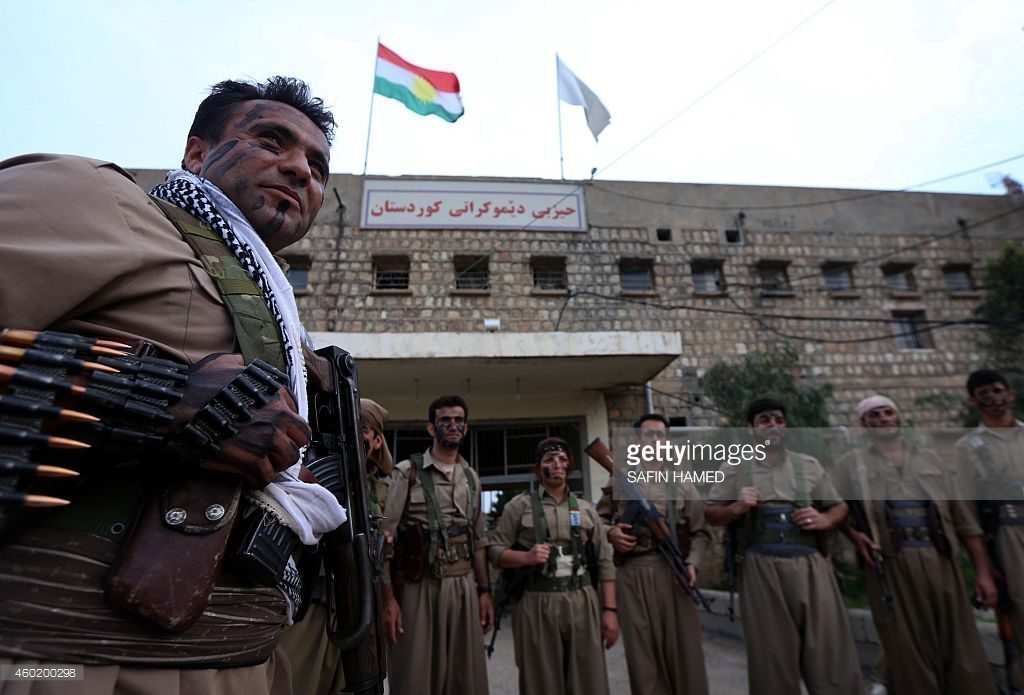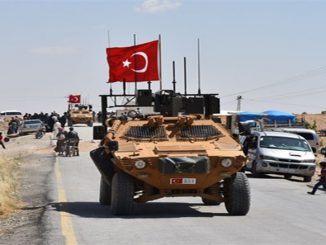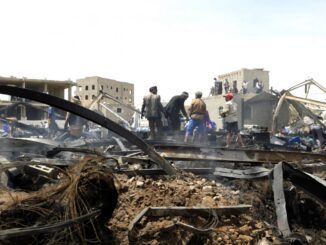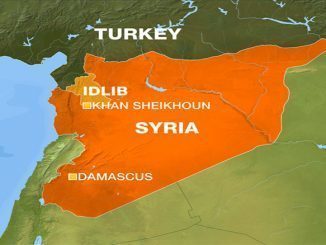
Eleven Kurdish militant rebels and three of Iran’s elite Revolutionary Guards were killed in clashes near the Iraqi border, the Fars news agency reported on Tuesday.
“A group of 11 counter-revolutionaries linked to the Kurdistan Democratic Party of Iran (KDPI), who were attempting to infiltrate the country were immediately detected… and were eliminated after 10 days of pursuit in the Sarvabad region,” said General Mohammad Hossein Rajabi, commander of the Revolutionary Guards in Kurdistan province.
He added that three members of the Revolutionary Guards were also killed.
It followed reports on Sunday that five rebels had been killed in the region. It was not clear if these were included in the 11 reported dead on Tuesday.
The commander the Revolutionary Guards’ ground forces, General Mohammad Pakpour, threatened on Sunday to launch cross-border attacks against rebel bases in northern Iraq.
“Since the main bases of these terrorists are in northern Iraq, if they don’t follow through with commitments to stop these attacks, their bases will be targeted where they are,” he said.
‘Tensions resurfaced’
The recent clashes with the KDPI – which since its beginnings in 1945 has pushed for Kurdish rights in Iran – are not new. Although peace between the KDPI and Iran had held for some years, tensions resurfaced last year, Omar al-Nidawi, an Iraq analyst based in Washington DC told Al Arabiya English.
“This is a new skirmish in a long conflict,” Nidawi said.
Just as Turkey has sent in the army to quell unrest and violence in provinces with a large Kurdish minority, Iran has occasionally performed “shallow incursions” in areas where respective Kurdish fighters are active – mostly around the eastern edges of Iraq’s northeastern Sulaymaniyah province.
Ambassador James Jeffrey, a specialist on Turkey, Iraq, and Iran at the Washington Institute, describes the tensions to as the “Iranian Kurdish chapter of the PKK,” explaining that Iran attacks what it believes as Kurdish bases in Iraq – actions which are tolerated by the Baghdad government.
Despite the rise in tensions, Nidawi argues that the recent fighting is “unlikely to have a significant impact on relations between Baghdad and Tehran.”
“Baghdad has bigger more pressing security issues than this to deal with… even if Baghdad didn’t approve of Iran’s actions, Iraqi officials may hesitate to criticize Iran, given the support it’s been extending to Baghdad in the war against ISIS.”
Demanding independence
The KDPI is the oldest Kurdish party in Iran. It has fought on-off insurgencies demanding independence, stepping up its armed rebellion after a crackdown by the Islamic authorities in the wake of the 1979 revolution.
Iran intervened across the border in 2011 following Kurdish rebel attacks on its territory, forcing the insurgents to retreat deeper into Iraqi territory.
Iraq’s Kurdish authorities also worked to keep the rebels away from the Iranian border, greatly limiting attacks in recent years.
But there has been increased activity in recent weeks, with Iran reporting at least 17 Kurdish rebels and four security personnel killed in clashes in the northwest this month.



